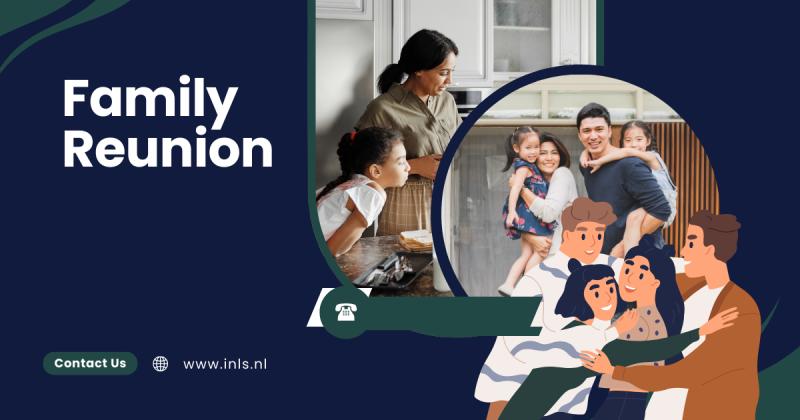Family Reunion in the Netherlands: A Guide for Non-EU Citizens

For non-EU citizens, reuniting with family members in the Netherlands is an exciting opportunity, but it involves navigating the Dutch immigration system. The Netherlands offers several pathways for family reunion, allowing spouses, partners, children, and other immediate family members to join loved ones living or working in the country. This guide will walk you through the key steps and requirements for non-EU citizens seeking family reunification in the Netherlands.
Who is Eligible for Family Reunification?
Family reunification in the Netherlands applies to non-EU citizens who wish to join a family member who is a resident of the Netherlands. Eligible family members include:
Spouses or registered partners
Unmarried partners in a long-term relationship
Children under 18 years of age
Adopted children or stepchildren
To apply, the family member living in the Netherlands (known as the sponsor) must have legal residency, such as a residence permit for work, study, or asylum.
Key Requirements for Family Reunion
Proof of Relationship: You must provide official documentation proving your family relationship with the sponsor, such as a marriage certificate, birth certificate, or proof of a registered partnership.
Adequate Income: The sponsor must demonstrate sufficient income to support the family members joining them. The income requirement varies based on the family member’s situation and the number of dependents, but in general, the sponsor should earn at least the Dutch minimum wage.
Accommodation: The sponsor must also provide proof of adequate accommodation in the Netherlands to house the family members. The housing must meet basic living standards and be large enough to accommodate all family members.
Health Insurance: Family members joining the sponsor must have valid health insurance that covers their stay in the Netherlands.
Application Process
Submit the Application: Applications for family reunification are submitted to the Dutch Immigration and Naturalisation Service (IND). The application process can be initiated by the sponsor living in the Netherlands or by the family members abroad at the Dutch embassy.
Residence Permit: Once the application is approved, family members will receive a residence permit that allows them to live and work in the Netherlands. This permit is usually valid for the same duration as the sponsor’s residence permit.
MVV Visa: In some cases, non-EU citizens may need to apply for a long-term visa, called an MVV (Machtiging Voorlopig Verblijf), before entering the Netherlands. This visa allows them to enter the country and obtain their residence permit.
Conditions After Arrival
Upon arriving in the Netherlands, family members are required to register with the local municipality and obtain a citizen service number (BSN). They must also attend a civic integration exam within three years to ensure their successful integration into Dutch society.
Conclusion
Reuniting with family in the Netherlands is possible for non-EU citizens through the family reunification process. By meeting the legal requirements and following the necessary steps, families can enjoy life together in the Netherlands. However, navigating this process can be challenging, so seeking professional guidance can ensure a smoother and quicker path to reunion.
Need help with your family reunification application? Contact INLS (Immigration Services to the Netherlands) today. Our team of experts is here to guide you through every step of the process, ensuring your family is together as quickly as possible. Visit us at INLS for more information.
Comments